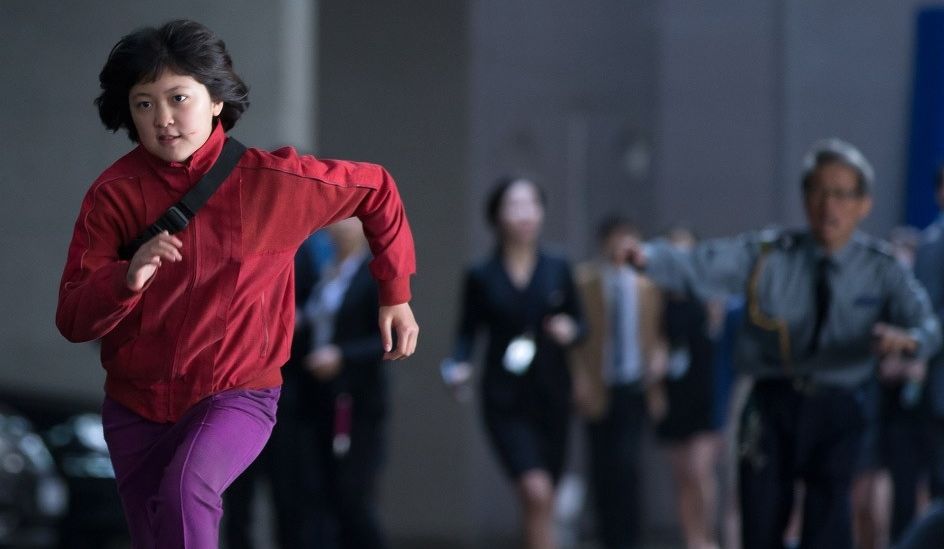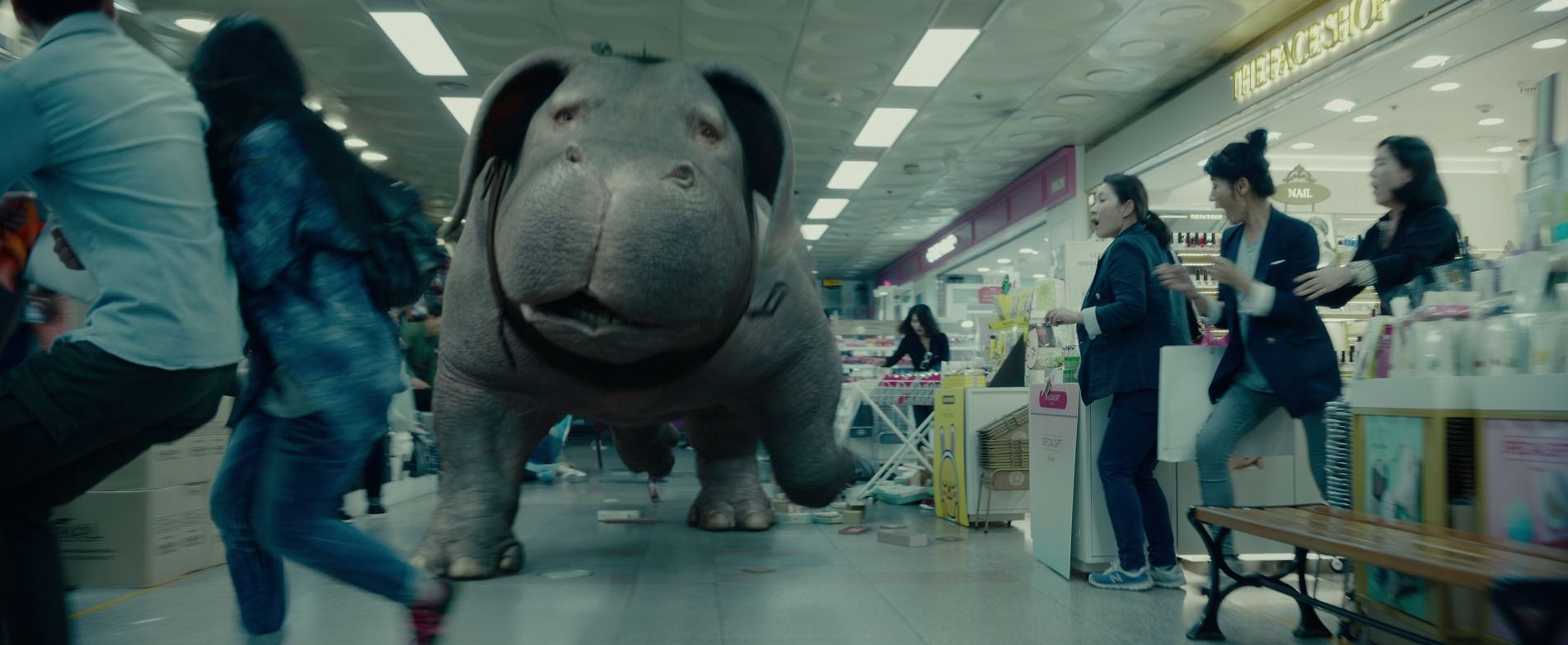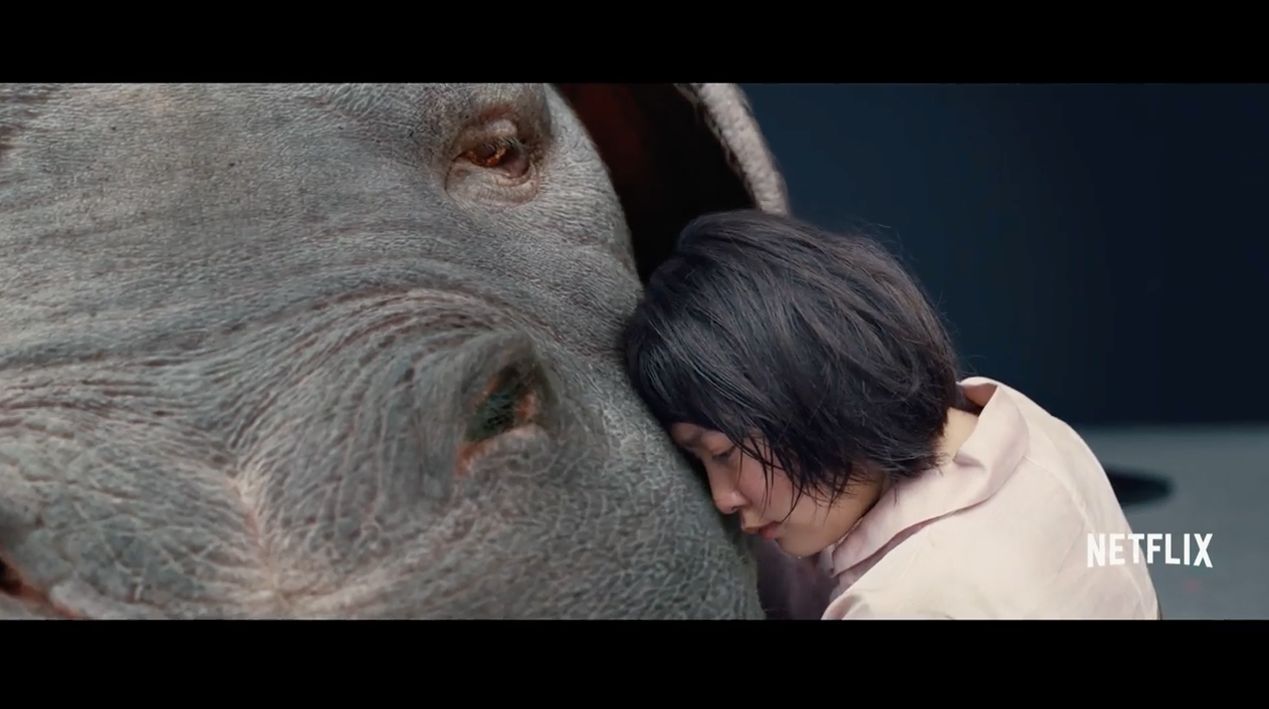
Okja
 There is an irony about those ‘inspirational’ quotes concerning the importance of originality, in that one is very much like the other. Apart from Mark Twain’s brave assertion, that 'all ideas are second-hand … there is not a rag of originality about them anywhere’, which is also ironic, in that it stands out from the other quotes on account of its ‘originality’. To be fair, people use the term to describe creativity, which is in abundance across every culture worldwide. But if ever a film came close (like the planet Earth is close to the sun, as I am a fan of the second-hand ideas idea) to originality, it would have to be ‘Okja’.
There is an irony about those ‘inspirational’ quotes concerning the importance of originality, in that one is very much like the other. Apart from Mark Twain’s brave assertion, that 'all ideas are second-hand … there is not a rag of originality about them anywhere’, which is also ironic, in that it stands out from the other quotes on account of its ‘originality’. To be fair, people use the term to describe creativity, which is in abundance across every culture worldwide. But if ever a film came close (like the planet Earth is close to the sun, as I am a fan of the second-hand ideas idea) to originality, it would have to be ‘Okja’.

Super-pig
Leading lady Okja is one of twenty-six super-pigs specially bred (well, genetically modified, if you will pardon my language) to satisfy the western world’s burgeoning need to gorge on meat. So this is a movie about a pig; not a cute, pink farm piglet like Babe, that actually resembles the sort we take our children to see before they realise what they become; but a grey, hippo-faced, lop-eared gentle giant that actually looks like a mythical anime creature. Raised by the young Mija (Seo-Hyun Ahn) in a Heidi-like existence with her grandfather, Hee-Bong (Hee-Bong Byun) in the rolling hills of South Korea, Okja, like most farm creatures, is happily ignorant of her raison d’etre, as is Mija. Until one day when the eccentric Dr Johnny (Jake Gyllenhaal), a celebrity scientist responsible for the breeding programme, spirits Okja away from Mija, while grandfather distracts her. Devastated by the loss of her only friend and playmate, Mija sets off to spirit Okja right back to her home in the hills and after a beautiful Schindler’s List moment in a crowd (a good use of a secondhand idea) on arrival in Seoul, is surprised to find that there is a third party pursuing her pig: the Animal Liberation Front (ALF) …

Animal Ethics and Craziness
Director Joon-ho Bong has created a mirror of animal ethics of our time. But, contrary to my expectation of a sobering piece bursting with corruption and arguments for animal sentience, he succeeds in giving us two hours of craziness and humour whilst still managing to leave you rattled by the current trajectory upon which humankind is cruising.

Relevant Themes
Okja’s status as a CGI pig, which gives her licence to be anything she wants to be (rabbit meets hippo in my opinion), gives the movie a dystopian feel. On the one hand, this removes the story from our reality and allows you to wallow in the hilarity; on the other hand, it adds a chill to the plot, as themes such as GM, corporate greed and deceit of the masses - all themes of our world - abound in ‘Okja’, therefore giving us enough parallels to provoke some negative reflections on our own society.
Unusual Protagonist
Lacking the saccharine quality displayed by most child actors in these roles, Seo-Hyun Ahn is an unusual child protagonist. But her determinedly set jaw and swollen black eye on display for most of the movie, gives us a far richer facet to Mija’s big personality; it enhances her character as hard-headed farm girl with an integrity beyond her years. Her consistent under-playing of her role and her ability to deliver ironic lines (‘Get Okja on the phone now!’) with unmatchable drollness, is impressive. Gyllenhaal is disturbingly mad as Dr Johnny; his drunken animal husbandry pushing back the boundaries of humour and reminding us that this is a film with real, pertinent themes. Tilda Swinton plays Lucy Mirando, CEO of Mirando Corporation, the controversial corporation responsible for the equally controversial breeding programme. Swinton pulls off a highly-strung yet steely Lucy, off-set by piglet-pink suits and baby blond hair, surely symbolising the cold, grasping nature of a modern-day food industry sporting glitzy culinary delights via advertising on the outside, but rammed with unpalatable entities within. The band of bohemian ALF supporters provides some entertaining cameo roles, with some extra plot strands for entertainment value.

Tenderness
The quaint, background music throughout lends a lightheartedness to ‘Okja’, in sharp contrast with the grimness that lies in wait in the second half. But John Denver’s ‘Annie’s Song’, after the bizarreness of a pig-chase through a crowded shopping mall, is surprisingly moving; the honesty of Mija’s relationship with Okja is clearly manifest and I defy any viewer to not feel a drop, if not a flood of biblical proportions, of tenderness for this big, beautiful beast, whose destiny lies in the pale, bony fingers of a sociopath.



